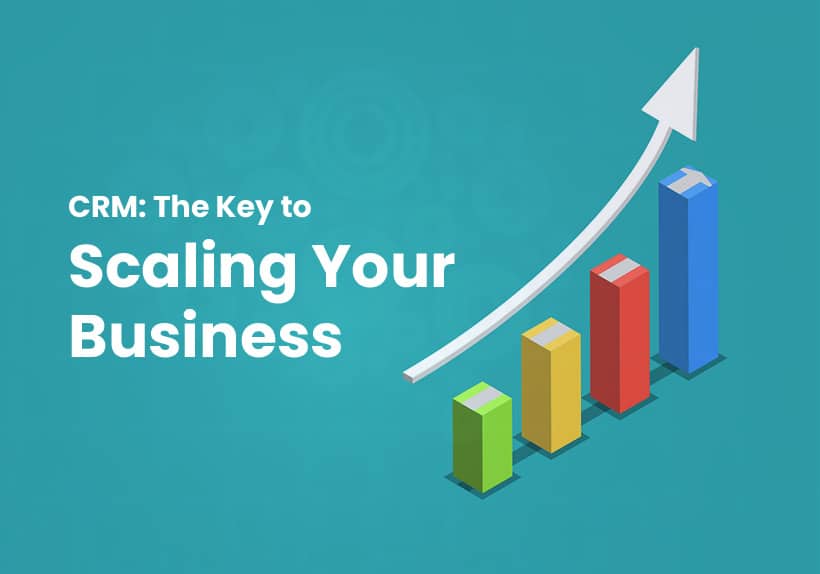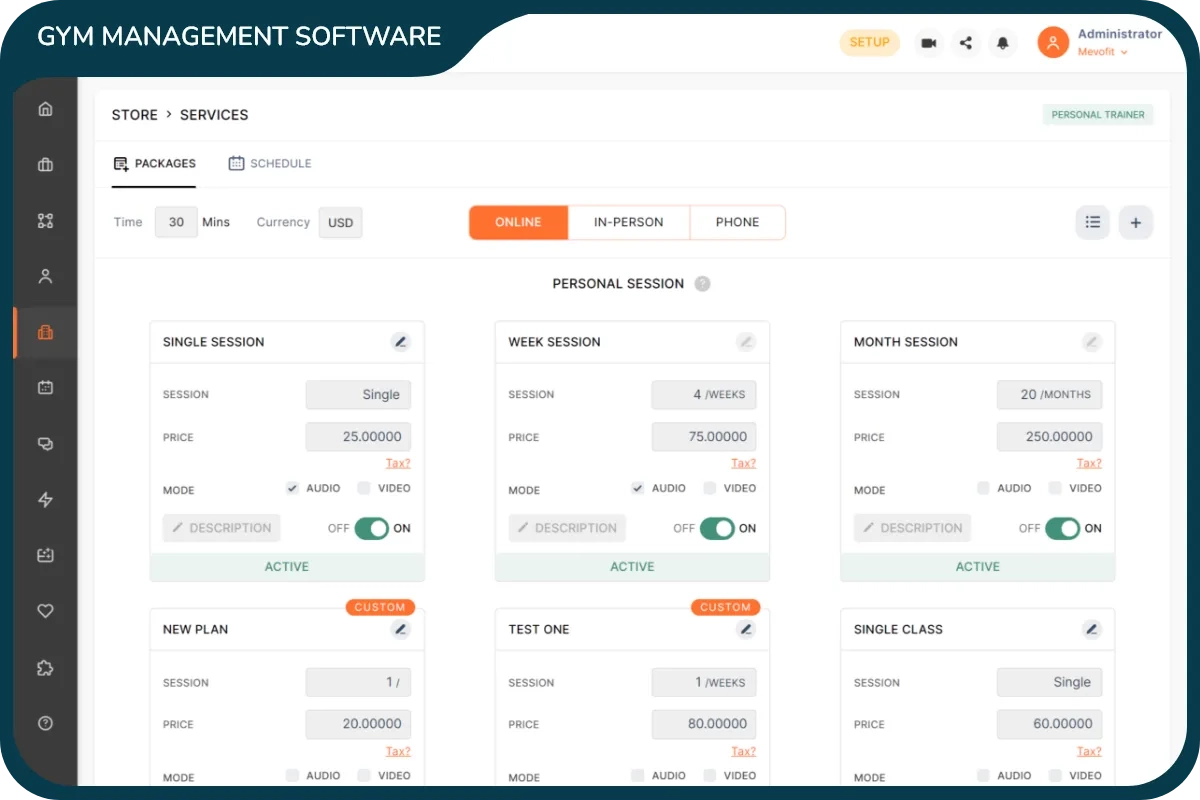Unlocking Growth: The Best CRM Systems for Small Therapy Practices in 2024
Unlocking Growth: The Best CRM Systems for Small Therapy Practices in 2024
Running a small therapy practice is incredibly rewarding. You get to help people, build meaningful relationships, and make a real difference in your community. However, let’s be honest, it’s also challenging. You’re not just a therapist; you’re also a business owner. That means juggling appointments, managing client records, handling billing, and marketing your services – all while trying to provide the best possible care.
That’s where a Customer Relationship Management (CRM) system comes in. Think of it as your central hub for everything related to your clients and your practice. It helps you stay organized, streamline your processes, and ultimately, free up your time and energy so you can focus on what you do best: helping your clients thrive.
But with so many CRM options out there, choosing the right one can feel overwhelming. Don’t worry, this comprehensive guide will walk you through the best CRM systems specifically designed for small therapy practices in 2024. We’ll cover everything from essential features and pricing to ease of use and integrations, helping you make an informed decision that will set your practice up for success.
Why Your Therapy Practice Needs a CRM
Before we dive into the specifics, let’s explore why a CRM is a non-negotiable tool for modern therapy practices. It’s not just about being trendy; it’s about efficiency, client satisfaction, and long-term growth.
1. Enhanced Organization and Efficiency
Imagine a world where client information isn’t scattered across sticky notes, email threads, and filing cabinets. A CRM centralizes all client data in one secure location. This includes contact information, appointment history, session notes (with appropriate HIPAA compliance), billing details, and communication logs. With all this information readily available, you can:
- Save Time: Quickly access client information instead of searching through multiple systems.
- Reduce Errors: Minimize the risk of data entry mistakes and lost information.
- Improve Communication: Easily track and manage all client interactions, ensuring consistent and personalized communication.
2. Improved Client Relationships
Building strong client relationships is at the heart of successful therapy. A CRM helps you foster these relationships by:
- Personalizing Interactions: Accessing client history and preferences allows you to tailor your communication and provide a more personalized experience.
- Streamlining Communication: Send automated appointment reminders, follow-up emails, and birthday wishes to keep clients engaged.
- Providing Better Support: Track client progress and identify potential issues proactively, allowing you to provide timely and effective support.
3. Streamlined Administrative Tasks
Administrative tasks can be a major time drain for therapists. A CRM automates many of these tasks, freeing you up to focus on client care. This includes:
- Scheduling Appointments: Many CRMs offer integrated scheduling tools, allowing clients to book appointments online and reducing no-shows.
- Managing Billing and Invoicing: Generate invoices, track payments, and manage insurance claims with ease.
- Automating Reminders: Send automated appointment reminders and follow-up emails to reduce no-shows and improve client engagement.
4. Data-Driven Decision Making
A CRM provides valuable insights into your practice’s performance. You can track key metrics such as:
- Client Acquisition: Analyze where your clients are coming from and which marketing efforts are most effective.
- Client Retention: Identify clients who are at risk of dropping out and take proactive steps to retain them.
- Revenue Generation: Track your revenue and identify opportunities for growth.
Key Features to Look for in a CRM for Therapists
Not all CRMs are created equal. When choosing a CRM for your therapy practice, look for these essential features:
1. HIPAA Compliance
This is non-negotiable. Your CRM must be HIPAA compliant to protect your clients’ sensitive health information. This means it must meet specific security standards to ensure the confidentiality, integrity, and availability of electronic protected health information (ePHI). Look for CRMs that offer:
- Secure Data Storage: Data encryption both in transit and at rest.
- Access Controls: Role-based access and user authentication.
- Audit Trails: Track user activity and data changes.
- Business Associate Agreements (BAAs): A signed agreement with the CRM provider that outlines their responsibilities in protecting ePHI.
2. Client Management
The core of any CRM is client management. Look for features that allow you to:
- Store Client Information: Securely store contact details, demographics, insurance information, and other relevant data.
- Manage Session Notes: Maintain organized and easily accessible session notes (with appropriate HIPAA compliance).
- Track Client History: Access appointment history, communication logs, and treatment plans.
- Document Management: Upload and store important documents, such as consent forms and release of information.
3. Scheduling and Appointment Management
Efficient scheduling is crucial for a smooth-running practice. Look for a CRM that offers:
- Online Booking: Allow clients to book appointments online, 24/7.
- Appointment Reminders: Automated email and SMS reminders to reduce no-shows.
- Calendar Integration: Sync with your existing calendar (e.g., Google Calendar, Outlook) to avoid scheduling conflicts.
- Appointment Confirmation: Automated confirmation emails.
4. Billing and Invoicing
Simplify your billing process with a CRM that offers:
- Invoice Generation: Create and send professional invoices.
- Payment Processing: Integrate with payment gateways (e.g., Stripe, PayPal) to accept online payments.
- Insurance Claims Management: Manage insurance claims and track claim status.
- Payment Tracking: Keep track of payments received and outstanding balances.
5. Communication Tools
Stay connected with your clients through integrated communication tools:
- Email Marketing: Send newsletters, appointment reminders, and other communications.
- SMS Messaging: Send text message reminders, appointment confirmations, and other important updates.
- Secure Messaging: Communicate securely with clients through a HIPAA-compliant messaging system.
6. Reporting and Analytics
Gain valuable insights into your practice’s performance with reporting and analytics features:
- Client Demographics: Analyze client demographics to understand your target audience.
- Appointment Metrics: Track appointment no-shows, cancellations, and attendance rates.
- Financial Reports: Generate reports on revenue, expenses, and profitability.
- Marketing Analytics: Track the effectiveness of your marketing efforts.
7. Integration with Other Tools
Choose a CRM that integrates with other tools you use, such as:
- Teletherapy Platforms: Integrate with platforms like Zoom or Doxy.me for secure video sessions.
- Accounting Software: Integrate with QuickBooks or Xero for streamlined accounting.
- Marketing Tools: Integrate with email marketing platforms to automate your marketing efforts.
- Website Integration: Integrate with your website for online booking and client portal access.
8. Mobile Accessibility
Access your client information and manage your practice on the go with a mobile-friendly CRM. Make sure the CRM has a mobile app or a responsive design that works well on smartphones and tablets.
Top CRM Systems for Small Therapy Practices in 2024
Now, let’s explore some of the best CRM systems specifically designed for small therapy practices. We’ll consider their features, pricing, ease of use, and overall suitability for your needs.
1. TherapyNotes
TherapyNotes is a comprehensive practice management software specifically designed for mental health professionals. It’s a popular choice due to its user-friendly interface, robust features, and focus on HIPAA compliance.
Key Features:
- HIPAA Compliant: Secure data storage, encryption, and access controls.
- Client Portal: Clients can access their records, schedule appointments, and communicate securely.
- Scheduling: Online booking, appointment reminders, and calendar integration.
- Billing and Insurance: Integrated billing, insurance claims management, and payment processing.
- Session Notes: Customizable templates and secure storage for session notes.
- Reporting: Generate reports on client demographics, revenue, and other key metrics.
- Integrations: Integrates with popular teletherapy platforms and billing services.
Pros:
- User-friendly interface
- Comprehensive features
- Excellent customer support
- Strong focus on HIPAA compliance
Cons:
- Can be slightly more expensive than some other options.
- May have a steeper learning curve for beginners.
Pricing: TherapyNotes offers different pricing plans based on the number of clinicians in your practice. They also offer a free trial.
2. SimplePractice
SimplePractice is another popular practice management software that’s known for its ease of use and streamlined workflow. It’s a great option for therapists who want a straightforward and intuitive CRM.
Key Features:
- HIPAA Compliant: Secure data storage, encryption, and access controls.
- Client Portal: Clients can access their records, schedule appointments, and communicate securely.
- Scheduling: Online booking, appointment reminders, and calendar integration.
- Billing and Insurance: Integrated billing, insurance claims management, and payment processing.
- Session Notes: Customizable templates and secure storage for session notes.
- Telehealth: Integrated telehealth platform for secure video sessions.
- Marketing Tools: Client intake forms, email marketing, and website integration.
Pros:
- User-friendly interface
- Easy to set up and use
- Integrated telehealth platform
- Competitive pricing
Cons:
- May not have as many advanced features as some other options.
- Customization options are limited.
Pricing: SimplePractice offers different pricing plans based on the number of clients and features you need. They also offer a free trial.
3. Power Diary
Power Diary is a comprehensive practice management software designed for a wide range of allied health professionals, including therapists. It offers a robust feature set and is known for its excellent customer support.
Key Features:
- HIPAA Compliant: Secure data storage, encryption, and access controls.
- Client Portal: Clients can access their records, schedule appointments, and communicate securely.
- Scheduling: Online booking, appointment reminders, and calendar integration.
- Billing and Insurance: Integrated billing, insurance claims management, and payment processing.
- Session Notes: Customizable templates and secure storage for session notes.
- Marketing Tools: Email marketing, SMS reminders, and client communication tools.
- Reporting: Generate reports on client demographics, revenue, and other key metrics.
- Integrations: Integrates with various payment processors and other third-party tools.
Pros:
- Comprehensive feature set
- Excellent customer support
- Customizable templates
- Integrations with various tools
Cons:
- Can be slightly more complex to set up and use than some other options.
- Pricing may be higher for larger practices.
Pricing: Power Diary offers different pricing plans based on the number of practitioners and features. They also offer a free trial.
4. Cliniko
Cliniko is a cloud-based practice management software designed specifically for health professionals. It’s known for its user-friendly interface, comprehensive features, and excellent customer support.
Key Features:
- HIPAA Compliant: Secure data storage, encryption, and access controls.
- Client Portal: Clients can access their records, schedule appointments, and communicate securely.
- Scheduling: Online booking, appointment reminders, and calendar integration.
- Billing and Insurance: Integrated billing, insurance claims management, and payment processing.
- Session Notes: Customizable templates and secure storage for session notes.
- Reporting: Generate reports on client demographics, revenue, and other key metrics.
- Integrations: Integrates with various payment processors and other third-party tools.
Pros:
- User-friendly interface
- Comprehensive features
- Excellent customer support
- Mobile app for on-the-go access
Cons:
- Can be slightly more expensive than some other options.
- Limited customization options.
Pricing: Cliniko offers different pricing plans based on the number of practitioners and features. They also offer a free trial.
5. PracticeBetter
PracticeBetter is a comprehensive practice management platform designed for health and wellness professionals, including therapists. It stands out for its focus on client engagement and its wide range of features.
Key Features:
- HIPAA Compliant: Secure data storage, encryption, and access controls.
- Client Portal: Clients can access their records, schedule appointments, and communicate securely.
- Scheduling: Online booking, appointment reminders, and calendar integration.
- Billing and Insurance: Integrated billing, insurance claims management, and payment processing.
- Session Notes: Customizable templates and secure storage for session notes.
- Client Engagement Tools: Programs, questionnaires, and secure messaging.
- Telehealth: Integrated telehealth platform.
- Integrations: Integrates with various payment processors and other third-party tools.
Pros:
- Strong focus on client engagement
- Wide range of features
- Integrated telehealth platform
- Competitive pricing
Cons:
- Interface can be a bit overwhelming for beginners.
- Some advanced features may require a higher-tier plan.
Pricing: PracticeBetter offers different pricing plans based on the number of clients and features. They also offer a free trial.
Choosing the Right CRM: A Step-by-Step Guide
Now that you’re familiar with some of the best CRM systems, let’s walk through the process of choosing the right one for your practice.
1. Assess Your Needs
Before you start comparing CRM systems, take some time to assess your practice’s specific needs. Consider the following:
- What are your current pain points? What administrative tasks take up the most of your time? What areas of your practice could be more efficient?
- What features are essential? Make a list of the must-have features, such as HIPAA compliance, online booking, billing, and session notes.
- What is your budget? Determine how much you’re willing to spend on a CRM system.
- What is your technical proficiency? Consider how comfortable you are with technology and choose a CRM that aligns with your skill level.
- How many clients do you see? Some CRMs have pricing tiers based on the number of clients.
2. Research and Compare Options
Once you have a clear understanding of your needs, start researching different CRM systems. Use the information in this guide as a starting point, but also:
- Read reviews: See what other therapists are saying about different CRM systems.
- Visit websites: Explore the websites of the CRM providers and learn about their features and pricing.
- Compare features: Create a spreadsheet to compare the features of different CRM systems side-by-side.
- Consider integrations: Check which CRM systems integrate with the other tools you use.
3. Take Advantage of Free Trials
Most CRM systems offer free trials. This is a great opportunity to:
- Test the interface: Get a feel for how easy the CRM is to use.
- Explore the features: See if the CRM has all the features you need.
- Test the customer support: Reach out to the customer support team and see how responsive they are.
- Import your data: Try importing some of your client data to see how the CRM handles it.
4. Consider Your Long-Term Goals
When choosing a CRM, think about your long-term goals for your practice. Do you plan to hire other therapists or expand your services? Choose a CRM that can scale with your practice and support your future growth.
5. Make a Decision and Get Started
After evaluating your needs, researching your options, and taking advantage of free trials, it’s time to make a decision. Choose the CRM that best fits your needs and budget. Once you’ve chosen your CRM, take the time to:
- Set up your account: Follow the instructions to set up your account and configure the settings.
- Import your data: Import your client data into the CRM.
- Train your staff: If you have staff, train them on how to use the CRM.
- Start using the CRM: Start using the CRM to manage your practice and see how it can help you streamline your processes and improve client care.
Final Thoughts: Investing in Your Practice’s Future
Choosing the right CRM system is a significant investment in the future of your therapy practice. By selecting a CRM that meets your specific needs, you can streamline your administrative tasks, improve client relationships, and ultimately, free up your time and energy to focus on what matters most: providing exceptional care to your clients.
Take the time to research your options, compare features, and take advantage of free trials. With the right CRM in place, you’ll be well-equipped to navigate the complexities of running a small therapy practice and achieve long-term success. Good luck!




